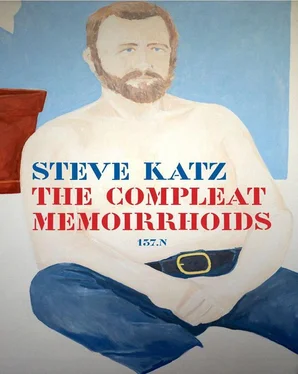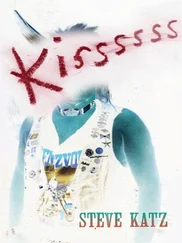I admired how gracefully Linne engaged any social situation. At the time I directed the University of Colorado Creative Writing Program. She was never my student, but was an aspiring poet. Though she was twenty years younger than I, she easily endured socializing with administration, faculty, graduate students, my ex and my kids, who were close to her age, my artist friends in Chicago and New York. There was a lightness, something comic about her social ease. No matter what the age range of the group, she managed to finesse a congenial interaction. Though she was beautiful and stylish, her looks never seemed to intrude on her gracious nature. I attributed this to a precocious maturity that I loved in her, and felt it justified my being with her. Eventually I realized that it was manners that got her through, exquisite southern manners bred into her through family and southern custom. Her father had been mayor of Birmingham, and at the time was president of The University of Northern Alabama.
Her family kept a full grown male African lion as a mascot for the university. It prowled in a barn next to her house. She visited it frequently. I imagine she needed good manners on those visits.
Our love teetered on a platform of sand, and when the illusion collapsed so did I sink into the fens of midlife crisis. Though I understood it as a natural tropism that an Autumn-Spring love affair almost always drifts you towards the break-up, prior knowledge never softens the blow of an emotional calamity. I became the perpetually crying professor. I wept in the classroom when students presented their stories of relationship glitches. Emotional reality became totally the world of sad country songs. Irony had no value, only the miserable truth. Love, impossible. Relationship, impossible. Jim Kimball, professor of philosophy, giant of compassion, political activist, ignoble drunk, from the South himself, consoled me with stories of the treacheries of Southern womanhood. Julia Frey, Ron Sukenick’s wife, who is from Louisville, Kentucky tried to parse for me the Southern woman. I didn’t want explanation. I just wanted her back. At least I thought that was what I wanted. Julia gave me a book by Rosemarie Danielle, Fatal Flowers: Sex, Sin, and Suicide In The Deep South . It told the whole story. Though it was a potboiler of cheap pop psychology, I clung to it as a bible. This was one time in my life when I might have found a therapist useful, though I didn’t buy one.
Linne returned to the South. I’d always been fearful of going there with her, to Florence, Alabama. By coincidence I’d already written something in my book, Moving Parts , some scenes set in South Tennessee, near Florence, before I met Linne. I never would have had the courage to show up there, the middle-aged Jewish writer guy from New York City cohabiting with the young Alabama beauty. Meet the family? Dinner at the Country Club?
At first I thought she left for a short trip, to see her ailing father. She had taken some classes from Kumar, one of my martial arts teachers. He gave lessons in Chinese massage, tutored her in a hot tub and came on to her there. She finessed him away. Of course maybe with a gun I could have done something, but I would have been helpless against his monstrous abilities. At first I was clueless about her abandonment, but when I finally got it I inundated her with letters, hoping to bring her back by inscribing magic words. I doubt she even read them. Perhaps things might have happened differently had we married, (she mentioned it more than once) had children, what Zorba called “the whole catastrophe.” I’d already raised three kids so I’d done my share to advance the species. I had taken a vasectomy. To marry her would have been only selfish, eventually not very fulfilling for Linne. I gazed at some pictures I took on the road to Canyon de Chelles, of herself diving into a watermelon we had bought, plump lips attacking the red pulp, black seeds stuck to her cheeks. That was a happy time. I virtually prayed to these snapshots every day. No magic worked. It was a predictable situation. The reason the young one is attracted to the older one — accomplishment, maturity, stability — becomes the cause of the young one’s feeling stifled. It starts as admiration and love, then finishes with a sense of entrapment. This can happen too in “normal” relationships. To me it felt like a huge vacuum sucked my heart and spirit dry.
She met an atheist lawyer back in Alabama, who owned ten acres of cotton. When she finally wrote to me she described how beautiful it was to wake up in the morning and look out at the sunrise over a field of cotton. Cotton, you betcha. She then moved to New York, into an apartment on Third Ave and Twelfth Street. Bobbie Guillot, her brother, lived in a loft in Brooklyn. He was a sculptor who had graduated from Yale where he’d studied with Richard Serra. Richard said great things about his work. I visited Linne once in her apartment, and Bobbie, whom I liked a lot, I visited several times. Linne came to a party for Guest Editor , a short-lived journal I edited once in New York. I thought she might have come to see me, but she kissed me on the cheek, looked over the crowd, and said, “Who’s here?” then turned away and worked the room. One time I ran into Linne on the street outside her job on 53rd Street. She was about to be married to a French pastry chef, who had been a sous-chef at La Tour D’Argent in Paris. I cattily repeated something that a Spaniard once said to me in Barcelona. “Why do you spend time with the French, Estaban? They are so dry.”
They opened a pastry shop on Atlantic Avenue in Brooklyn. I got a note from her inviting me, after they changed locations to lower Manhattan, for a taste of lemon tart. I never went. My last image of her is from her picture in the Living Section of the Times . It accompanied an article about her shop, a shot of herself dropping a croissant into a bag. Her crooked posture and the slightly bothered expression on her face was too familiar. She looked charitably unattractive.
Lionel stops the car between floors. He slowly pivots to look at me, his hand in his pocket. We are alone in the elevator, an old-style lift manually operated, with an accordion folding gate and a brass gizmo to work the car up and down. He is one of the few blacks working at Rothschild’s department store, the elevator operator and general gofer. Lionel is a lovable guy, radiant smile, always telling jokes, well-liked by customers and fellow employees. I am the shipping clerk, a job I have taken while Jingle finishes her degree in sculpture at Cornell. Rothschild’s is the only department store in town. I am confident of my shipping clerk skills from the training I got working after school in New York for Carl Henry Tobacco near Union Square. This is the Christmas season. I wrap and ship a record number of packages, and am done by 4:30, more than two hours sooner than anyone else has ever done. I am the greatest shipping clerk of all time.
Rather than praising me for my accomplishment I notice that everyone is pissed at me, from the store manager on down. They expect some extra hours of overtime around Christmas, to be affected partially by the shipping slowdown. Maybe that is why, thinks I, Lionel has stopped the elevator between floors. His hand slips from his pocket. palming a switchblade as long as his face. I stare into his smile. He snaps the blade open. Suddenly I feel like the totally white guy stuck between floors with the black guy swinging a blade. I see no escape for me.
“I’m going to cut you long, wide, and frequently,” Lionel says.
Is this retribution for my demonstrating that I am the world’s swiftest shipping clerk? Maybe I should return to the shipping alcove and unwrap some packages, wrap and unwrap until midnight.
Читать дальше












